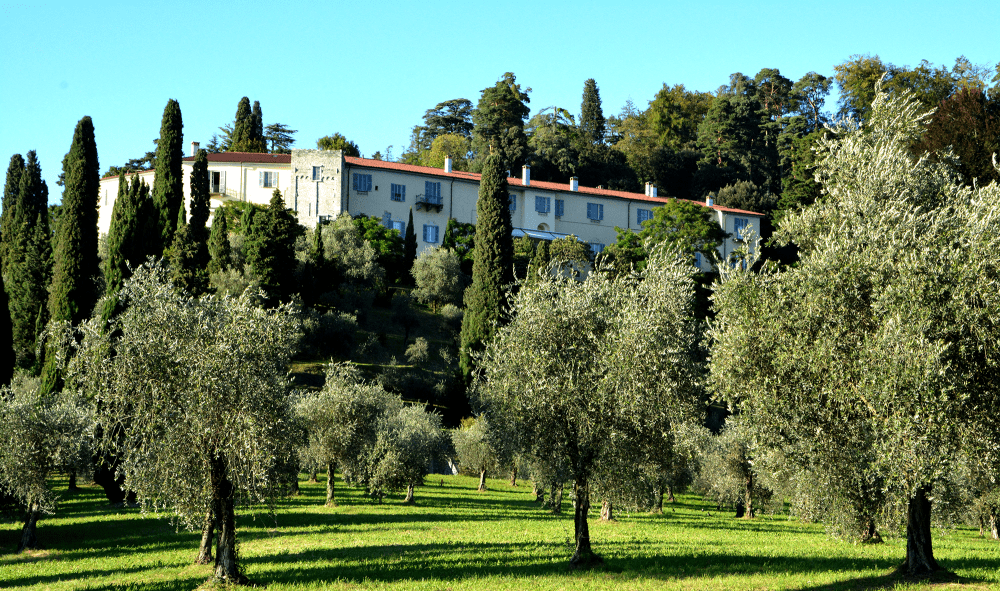Richard Whitt is a tech policy expert based in the San Francisco area, with over 30 years of experience bridging technology, business, ethics, and public policy. He is president of the GLIA Foundation, founder of NetsEdge LLC, and senior fellow with the Georgetown Tech Law and Policy Institute. Previously, as part of his 11-plus years with Google, Richard served as Corporate Director for Strategic Initiatives, where he championed an open Internet and guided tech innovation within the bounds of global policy.
Through his current work, including founding the GliaNet Alliance, Richard focuses on creating a more human-centered Web ecosystem built on trustworthy intermediaries and edge-based technologies.
A few words from Richard:
 “Many chapters were reshaped by my explorations at Bellagio. Perhaps the most foundational elements brought to life there were the concepts of personal contours, digital lifestreams, human mediations, and personal agents of autonomy/agency. In each case, my conversations with Joy Buolamwini, Tobias Rees, Vilas Dhar, and Rumman Chowdhury helped solidify my thinking about the nature of ethical tech and human trust.”
“Many chapters were reshaped by my explorations at Bellagio. Perhaps the most foundational elements brought to life there were the concepts of personal contours, digital lifestreams, human mediations, and personal agents of autonomy/agency. In each case, my conversations with Joy Buolamwini, Tobias Rees, Vilas Dhar, and Rumman Chowdhury helped solidify my thinking about the nature of ethical tech and human trust.”
Quote from Reweaving the Web:
“In light of our current shared crises, and with a deeper understanding of the many systems that envelop us, we can rethink and reshape how digital technologies are designed, in a way that promotes, and even enhances, our individual and collective humanity. The Web’s prevailing paradigm need not become further entrenched as the de facto operating system. Instead, new paradigms are possible, ones more grounded in promoting the needs and aspirations of ordinary people. Such paradigms can become the animating ethos for a new generation of governance mechanisms to serve far more of us than are presently being served. They can actively promote the best interests of users as actual human beings by building virtual walls of protection where necessary, finding windows where possible, and opening doors where fruitful. All on our terms. The initiative I will propose in this book is called “GliaNet,” and it is an Internet overlay, one designed to create a more decentralized and empowering ecosystem of digital trust. The term was chosen for at least three reasons. The Ancient Greek word “glia” means glue, which here connotes the social bonds of trust that bind us together in fruitful social and economic relationships. These human connections are increasingly broken for most of us in the Web experience. Conversely, Web companies seek to entrap us within the sticky meshes of their own design. Second, as in Spider-Man’s credo, “With great power comes great responsibility.” Too many companies operating online today lack the crucial elements of trust and accountability that should accompany — be bound to — their tremendous power and influence over our everyday lives. Third, the cellular structures in the human brain — the glial networks — serve as important support functions to the neurons operating in parallel. The glial cells in particular provide vital protection of neural pathways, enhance their operation, and promote their health and well-being. The GliaNet initiative then is premised on filling the Web’s existing and widening gaps of trust, accountability, and support. Ushering in a new ethos for digital technologies can also open up opportunities to drive societal shifts away from subpar systems. Perhaps, creating a human infrastructure of trust for our current challenges will pave the way for other forms of relational trust- building. Perhaps, treating data as a source of mutual relational benefits frees it up for as-yet-undreamed uses. Perhaps, putting tech in the hands of ordinary citizens will give them power to exercise fruitfully in other domains of their lives.”
Synopsis:
What’s wrong with the World Wide Web? Since the mid-1990s, it has connected billions, enabling information sharing, business, and entertainment. However, companies like Google and Facebook prioritize surveilling us, extracting our data, and manipulating behavior, leading to a mistrustful online environment filled with intrusive ads, misinformation, and harmful content.
In his new book, Richard Whitt, a former tech policy attorney, outlines how our digital future could improve. He proposes creating a new profession of Net fiduciaries to protect our interests using advanced technologies like personal AI agents. Whitt also suggests practical steps we can take to make this vision a reality.
Related

January 2025
The January 2025 Bellagio Bulletin highlights stories from Warren Evans, Alice Hill, Karen Florini, Atsango Chesoni, Amitava Kumar, Vibha Galhotra and Elise Bernhardt, all engaged in work that deepens our relationships with the planet, society and one another.
More